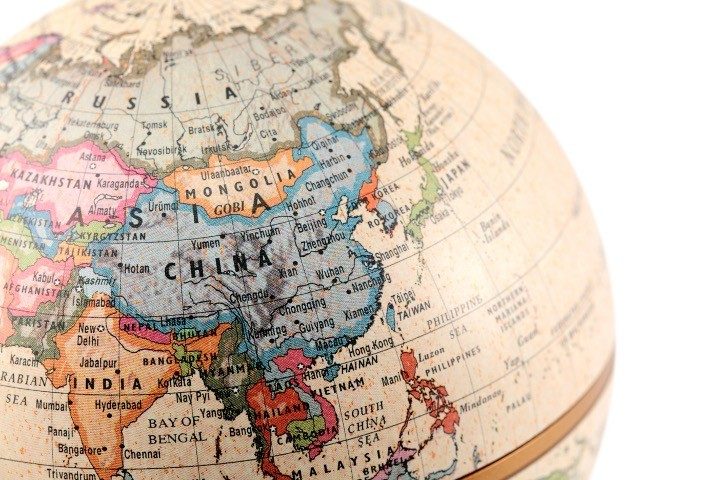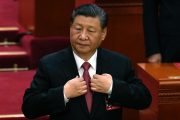
In the game of global chess playing out between the U.S. and the China-Russia alliance, Moscow is making gains in India that are laying the foundation for a major shift that could bring America’s influence in Asia — and throughout the world — toppling down.
The Russian energy conglomerate Rosneft announced on Wednesday that it has signed a deal to significantly increase its oil sales to India.
“Rosneft Oil Company and Indian Oil Company signed a term agreement to substantially increase oil supplies as well [as] diversify the grades to India,” said Rosneft CEO Igor Sechin in a statement, per The Hindu.
This came only one day after Russian Deputy Prime Minister Alexander Novak announced that sales of Russian oil to India had grown by more than 20 times last year’s figures.
The Hindu further reported:
Rosneft, however, did not specify the volumes stipulated in the agreement nor its value.
Rosneft said that representatives of the two oil companies also discussed the “possibilities of making payments in national currencies,” pointing to Russia’s efforts to de-dollarise its economy.
Russia, a major producer and key ally of the OPEC oil cartel, cut crude production by 500,000 barrels per day this month in response to the Western sanctions.
Rosneft earlier this month posted a sharp drop in annual profit in the wake of Western sanctions against Russia.
India is the world’s third-largest importer of crude oil, and began to increase its share of Russian oil imports after the war broke out in Ukraine. This development has come even as the G-7’s price cap on Russian took effect last year. New Delhi has said repeatedly that its priority is ensuring its own country’s energy independence. Notably, India has not criticized Russia over the Ukraine War and has declined joining in Western sanctions against Moscow.
In other words, like every other country on earth, India is more interested in its own self-interest than it is in supporting the Western establishment’s globalist ideals. What does New Delhi care about Ukraine and the West’s demonization of Russia so long as it gets the oil it needs to keep its country running?
Washington only has itself to blame.
First, the Biden White House’s moves to gut America’s energy sector, in particular oil production, means oil buyers throughout the world are going to look elsewhere to satisfy their needs. And Russia is all too happy to be the one to fill that void.
What this further shows is that the U.S. is continuing to push India closer to the Russo-Sino alliance. If America is truly interested in curtailing the rise of Communist China, then having a New Delhi that is allied with Moscow and Beijing is disastrous.
Both Russia and China understand that bringing India into their column is key to their goal of completely dominating Asia.
As The New American has previously explained, India plays a unique role as a potential spoiler to Moscow’s and Beijing’s ambitions in the region. While India suffers from widespread poverty and lack of development, that hasn’t stopped China from becoming a superpower.
India has now surpassed China as the world’s most populous country, with more than 1.4 billion inhabitants. It already has nuclear weapons. It has proven that it can produce educated and competent technical workers, as evidenced by many of those who have been “exported” to the United States via migration or otherwise have displaced American white-collar workers via offshoring.
India also borders China. As recently as 2020, soldiers from the two countries exchanged gunfire during a confrontation at the disputed Himalayan border. The last thing China wants is a hostile India, particularly a strong India that could pose a viable military challenge.
Nor do China and Russia want another superpower challenging their aims of regional dominance. The best strategy for them is to win India over. And Russia is clearly taking steps in that direction, even helping India build up its military.
In this case, China is certainly benefiting from its partnership with Russia. India isn’t crazy about China, but its growing dependence on Russia means it will continue working with Moscow despite Putin’s close ties to Xi.
As Krzysztof Iwanek, head of the Asia Research Centre in Poland, writes:
If country A is not exceptionally weak, it is often able to influence its bilateral relations with state B, but affecting the way your partner, state B, deals with your rival, state C, is usually more challenging. India is forced to accept Russia’s friendship with China the same way it is forced to accept U.S. dealings with Pakistan. Washington is, in turn, mostly turning a blind eye on India’s cooperation with Russia, and Pakistan’s cooperation with China, and so on.
Washington has largely shot itself in the foot as far as its relationships with many states in the world, alienating much of the international community through its policy of military interventionism, regime change, and slapping sanctions on states that don’t get in line with its values of “liberal democracy.”
Putin and Xi, meanwhile, have intelligently taken the opposite approach to Washington. Rather than forcing other nations to accept LGBT dogma and liberalize themselves, they simply ask to scratch each other’s backs when it comes to trade.




